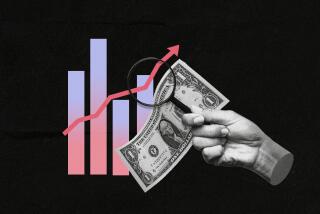Younger Workers Face Retirement Crunch
- Share via
WASHINGTON — Baby boom and generation X households, headed by a person aged 25 to 34, have greater accumulated assets -- but also more debt -- than current retirees had when they were the same age, congressional auditors said Friday.
Workers in the generation X and baby boom generations are likely to have similar levels of retirement income in real terms, but that level may not support generation X’s future living standards, the General Accounting Office report said.
Baby boomers were born between 1946 and 1964; and those in generation X were born between 1965 and 1976.
The levels of retirement incomes that baby boom and generation X workers will receive in their lifetimes depend in part upon their own behavior, such as how long they work and their saving habits, the GAO said. Factors they can’t control, such as the economy, also will have an effect, the GAO said.
Social Security trust funds are projected to become exhausted in 2042. Should that happen, Social Security then would be unable to pay scheduled benefits in full. Figures and projections in the report were adjusted for inflation.
Today’s workers are saving a smaller proportion of their incomes than earlier generations did, too little to maintain their standards of living and meet increasing health care costs in retirement, the GAO said.
These trends suggest that today’s younger workers might reach retirement unable to maintain the standards of living they had achieved while working. Also, further strains on retirement assets might come from the greater life expectancy of younger workers.
Most of the large increase in assets between current retirees and the baby boom is due to increased ownership and equity in housing, the report said.
Generation X workers will have similar levels of retirement income -- Social Security benefits, asset income, pension benefits and earnings -- adjusted for inflation at age 62 as their counterparts in the baby boom generation. Generation X workers, however, might be unable to replace a corresponding percentage of their preretirement incomes.
More to Read
Inside the business of entertainment
The Wide Shot brings you news, analysis and insights on everything from streaming wars to production — and what it all means for the future.
You may occasionally receive promotional content from the Los Angeles Times.










